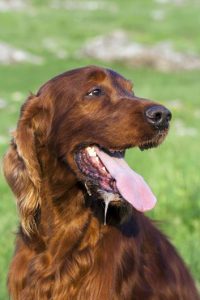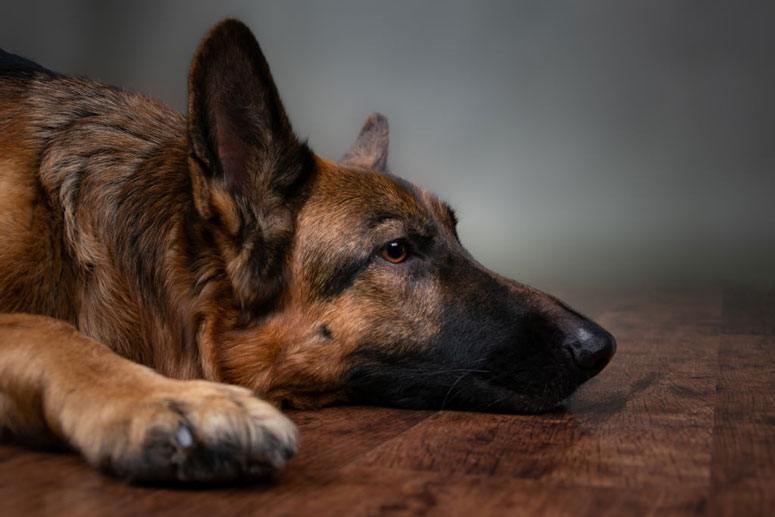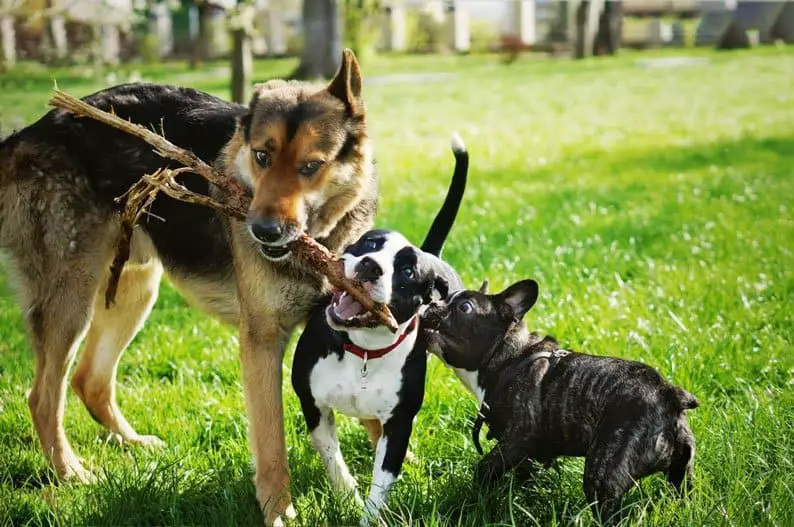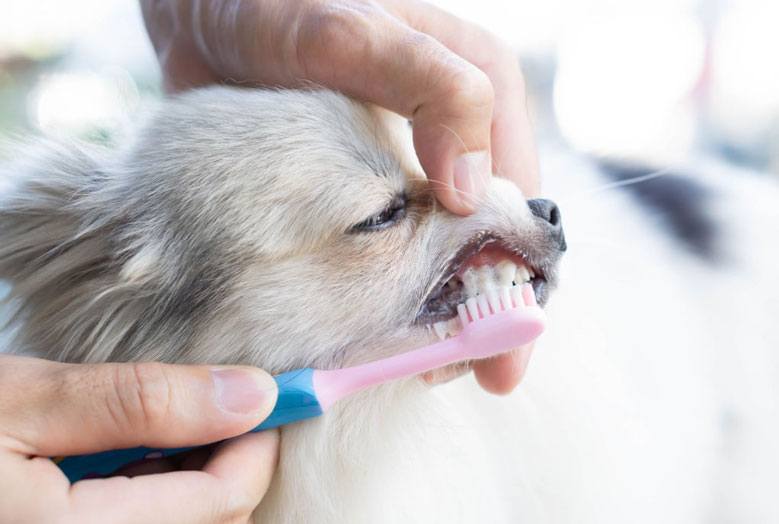Last Updated on 11/05/2020 by Veronica Jones

There’s nothing more startling than going in to cuddle your canine companion, only to discover a track of foam falling from their mouth. While there is certainly a terrifying stigma surrounding this occurrence, we’re here to tell you that it’s not always a massive cause of concern.
In this article we’ll break down the common reasons behind dogs foaming at the mouth, and help you understand what is going on with your drooling pup!
Don’t Automatically Assume The Worst
We’ve all heard the terrifying reasons behind our furry friends foaming at the mouth. It’s been seared into our minds through movies and frightening stories that a dog foaming at the mouth automatically equals rabies. I’m here to assure you that while that is a small possibility, 99% of the time there is nothing major to worry about.
While you should certainly pay attention to why your dog may be drooling or foaming at the mouth, it is extremely unlikely that a life threatening medical condition is behind the cause. In order to ease your mind, let’s dive into the most common reasons as to why your dog is foaming at the mouth.
Common Reasons Behind Dogs Foaming At The Mouth
Stress & Anxiety

Similar to humans, our furry friends can experience stress and anxiety in their daily lives. While their triggers may differ from ours, they can still experience anxiety in any kind of stressful situation. Similar to how some humans may bite their nails in a nerve wracking situation, dogs are known to drool.
When a dog is stressed, their automatic body response is to drool. It is a typical nervous reaction to any kind of environmental stressor, and does not necessarily point to any major cause of concern. This behavioral reaction is the reason why many dogs begin to drool when they arrive at the vet, step foot into new homes, and any other activity that may place them outside of their comfort zone.
Intense Exercise

If your pup has just participated in an intense play session, you shouldn’t be surprised to see a bit of foam around their mouth. Whenever a dog is exerting themselves, their body will begin to produce more saliva. This body response paired with the fact that they are taking in more oxygen with panting, the saliva in their mouth can begin to foam. The foam can even begin to increase each time your dog runs over to sip some water.
Once your dog calms down and ends the vigorous activity, the foam will diminish and soon disappear. If the foam around your dog’s mouth is making you nervous, just end the activity early and give them some time to rest.
Upset Stomach
Have you ever noticed that when you’re nauseous, it seems like your mouth begins to drool? This is exactly what happens for our canine friends as well. This can be a result of consuming something that tasted bad, experience a round of gastrointestinal upset, or any other cause that may lead to them becoming nauseous.
If this behavior is short lasting and there are no other symptoms present, then there is no need to worry. However, if your dog is experiencing any other symptoms such as lack of appetite, vomiting, diarrhea, or lethargy, it’s best to visit your veterinarian and get to the source of the nausea.
Eating Something Odd
Similar to dogs having an upset stomach, eating something that tasted bad can cause a dog’s salivary glands to go into overdrive. This can happen when your dog eats a food they did not like, after giving them medicine, or any other cause that leaves an unsavory taste in their mouth.
Serious Medical Reasons Behind Dogs Foaming At The Mouth
Let’s cover the more serious medical causes that can cause a dog to drool excessively. While these aren’t the first conclusions you should jump to, it’s best to be aware of the possibilities!
Dental Problems

Dogs are at high risk of dental complications due to not having their teeth brushed often in many cases, as well as not having adequate dental cleanings and care. Due to this, they will experience a buildup of plaque and bacteria that can lead to tooth pain.
When a dog is experiencing dental pain or a dental abscess, their body’s first response is to create more saliva. Due to this, many dogs with tooth pain will drool and foam excessively. If you notice this in your pup with the addition of difficulty eating, face sensitivity, facial swelling, blood in their water bowl, or any other indicators of dental complication, it’s best to contact your veterinarian.
Seizures
Similar to a dog drooling from vigorous exercise, a seizure can cause our dog to foam at the mouth. This is due to the amount of saliva being produced during their seizure along with the rapid panting that your dog is likely to have after their seizure.
If your dog is drooling at the mouth and is showing signs of disorientation, trembling, convulsing, or any other neurological symptoms, you should contact your vet ASAP.
Eating Something Toxic
Dogs can certainly begin to foam at the mouth after eating something toxic. This can be due to the foul taste of the toxin, the nausea that comes along with eating the toxin, as well as any mouth pain that is caused by ingesting the toxic substance. The body will produce excess saliva as a line of defense, which can cause your dog to foam at the mouth.
If you notice any excessive drooling or foaming in your dog and you fear they may have consumed something toxic, it’s best to contact your vet immediately. Toxic substances can cause serious damage to your dog’s overall health, and should never be ignored.
Rabies
If you have an indoor dog that is fully vaccinated, it is extremely unlikely that the cause behind their drooling or foaming is due to having rabies. As long as you keep your pup up to date on their rabies vaccinations and are diligent about monitoring them if any wildlife could be present, there is a small chance that they will ever be at risk of contracting rabies.
However, if you live in an area that has an abundance of wildlife (bats, skunks, raccoons, etc.), and your dog is not up to date on their rabies vaccine, this is a possibility. Rabies affects the nervous system in the host, causing a long list of erratic behavior. Dogs with rabies can experience excessive drooling and foaming, neurological behavior, lethargy, drastic behavioral changes, and more.
If you think your dog is foaming at the mouth and may have had an encounter with a rabid animal, or if your unvaccinated dog is around wildlife, it’s best to contact your vet for a plan of action. If you truly fear that rabies may be the cause, DO NOT handle your dog in any way. Your vet can get you in contact with your local animal control to ensure your safety.

